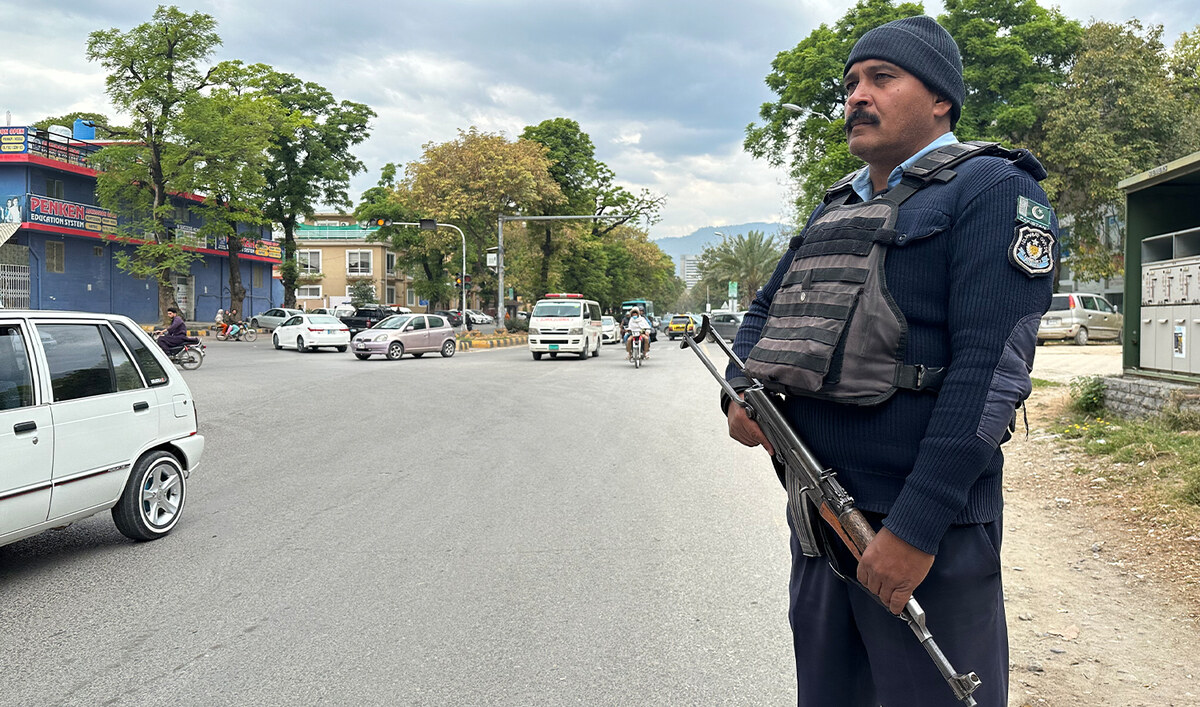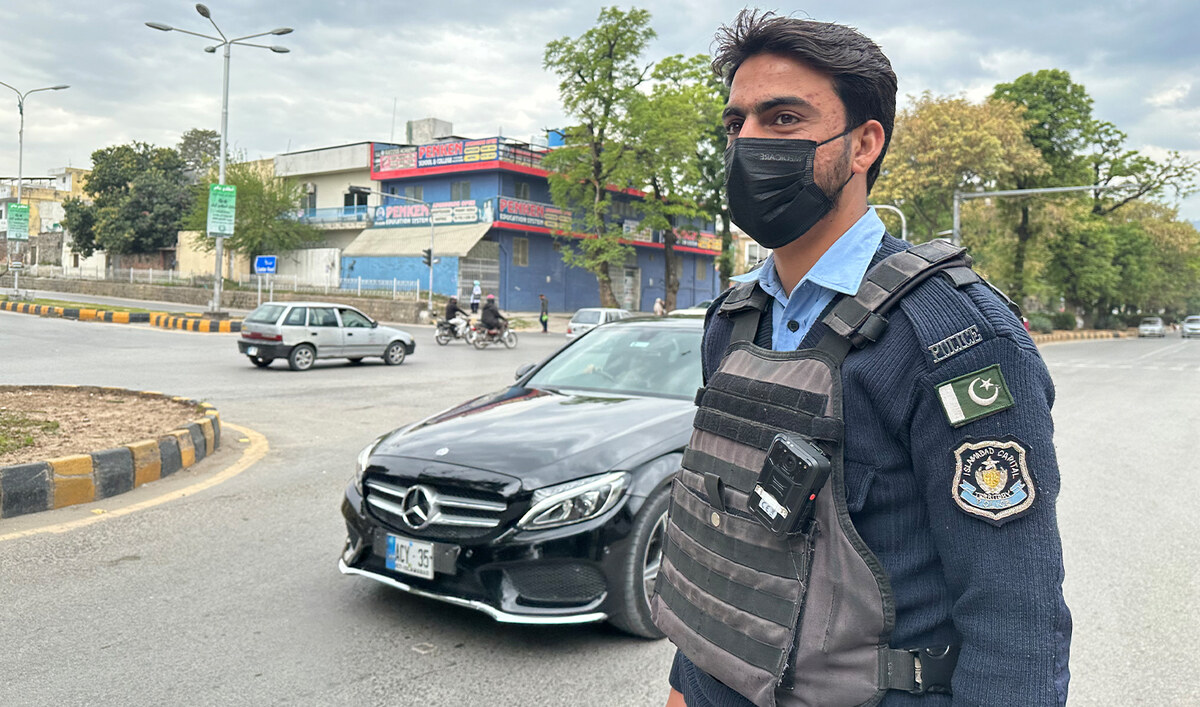ISLAMABAD: As the daylight fades and residents sit together to break their fast amid a call for Maghreb prayer in the Pakistani capital of Islamabad, the call for duty rings louder for Constable Malik Muhammad Ikram than the call to iftar, compelling him to break his fast with a date and water.
The 47-year-old, who has been serving in the Islamabad police for 18 years and is currently part of their Dolphin patrolling squad, says he is proud of efficiently discharging his duty, which takes on a different meaning in Ramadan that not only tests his endurance but also his devotion to faith.
Ikram’s duty schedule remains the same in Ramadan as any other day of the year, with an eight-hour shift varying between 7am-3pm, 3pm-11pm or 11pm-7am. But the fatigue feels different while fasting, he says.
“Indeed, performing our duties during Ramadan feels different,” he told Arab News while on duty in Islamabad’s G-6 sector within the remits of the Aabpara police station.
“Nonetheless, it is our responsibility and our profession. We can choose to work with a positive attitude or do it out of obligation, so we try to do it happily.”

Islamabad police constable, Malik Muhammad Ikram, stands guard during the holy month of Ramadan in Islamabad, Pakistan, on March 14, 2025. (AN photo)
The capital city police department doesn’t provide any formal iftar or sehri meals but offers whatever it can to on-duty staff, according to Ikram. The policemen manage to have quick sehri meals before heading out for duty on most days, and if not, they swing by a government mess or food stalls at the nearby G6 market to munch something quickly.
Ikram, who leads a team of three other cops, says the iftar hour is particularly “unpredictable” as they often break their fast with dates, water and fruit while being caught up in patrolling, chasing suspects or responding to emergency calls.
“If we’re on duty during iftar, we have to manage on our own,” he said. “If there’s a station nearby, we go there but there are times, when the Azaan is being called and we’re going for some task.”
Ikram recalls how he received an emergency call from the police control room about an accident near Zero Point just when he was about to break his fast this month and had to rush to the site to respond to the situation.
“If we are having iftar and we get a call regarding an emergency case or an accident, we have to leave everything and respond to the call,” he explained. “We also need to report our response time to the control room, letting them know how long it took us to respond after receiving the call.”
He said he was able to save a young man’s life following that call from the police control room.
“I felt really happy from the bottom of my heart,” he said, reminiscing the moments like this that remind him why he had joined the police force. “The life of the man was saved due to timely treatment.”

A police officer stands guard during the holy month of Ramadan in Islamabad, Pakistan, on March 14, 2025. (AN photo)
For a policeman, being patient is part of the job, particularly in Ramadan, as fatigue and hunger could flare up tempers that hampers their duty, according to the 47-year-old.
“We have to tolerate our anger because it’s the public,” he said. “Our profession and nature of duties are such that anger cannot work here and we have to be patient.”
Recalling another incident, he said they were stationed near a traffic signal in the G6 sector when his team signaled two youths riding a bike to stop, but they sped up and were eventually stopped after a long chase.
“We verified and found out that their bike was stolen. That’s why they tried to flee,” he said, highlighting that his team calmly handled the situation even though it could have turned tense.
Ikram says he is often assigned to the Red Zone, a high-security area housing key government buildings, embassies and key institutions, where the shift runs up to 16 hours even during Ramadan, but he accepts it as part of his calling.
The 47-year-old, whose other family members have also served in police, says he always wanted to contribute to the society’s betterment, which was the reason he joined the force.
“If there is an emergency during Ramadan, duty comes first,” he said. “I took up this profession because firstly, it’s all about Rizq (livelihood) — Allah had written our Rizq in this profession. Secondly, it was my personal choice to join the Islamabad police.”
Looking back at his years of service, Ikram says he finds fulfillment in small yet powerful moments.
“Iftar and suhoor are secondary. Duty is our responsibility, and the government pays us for it. So, duty always comes first,” he said as he picked up his radio and moved on with the routine patrol while fasting with an unwavering faith.












